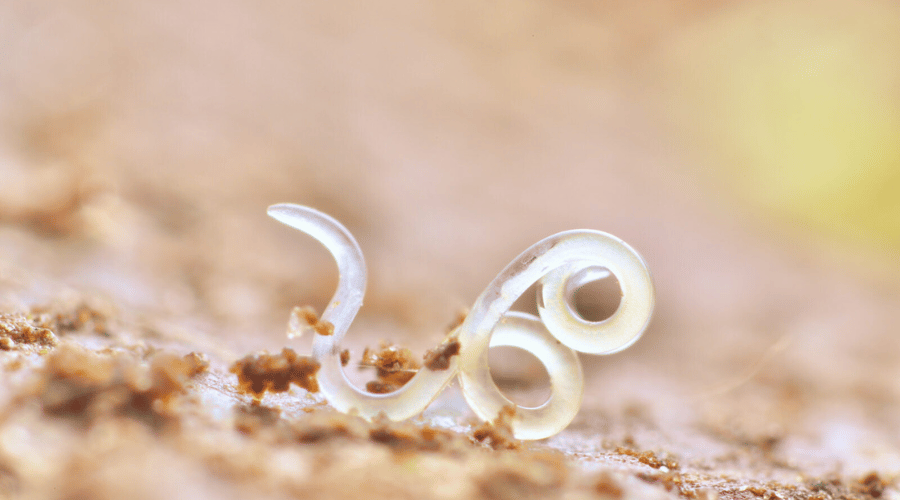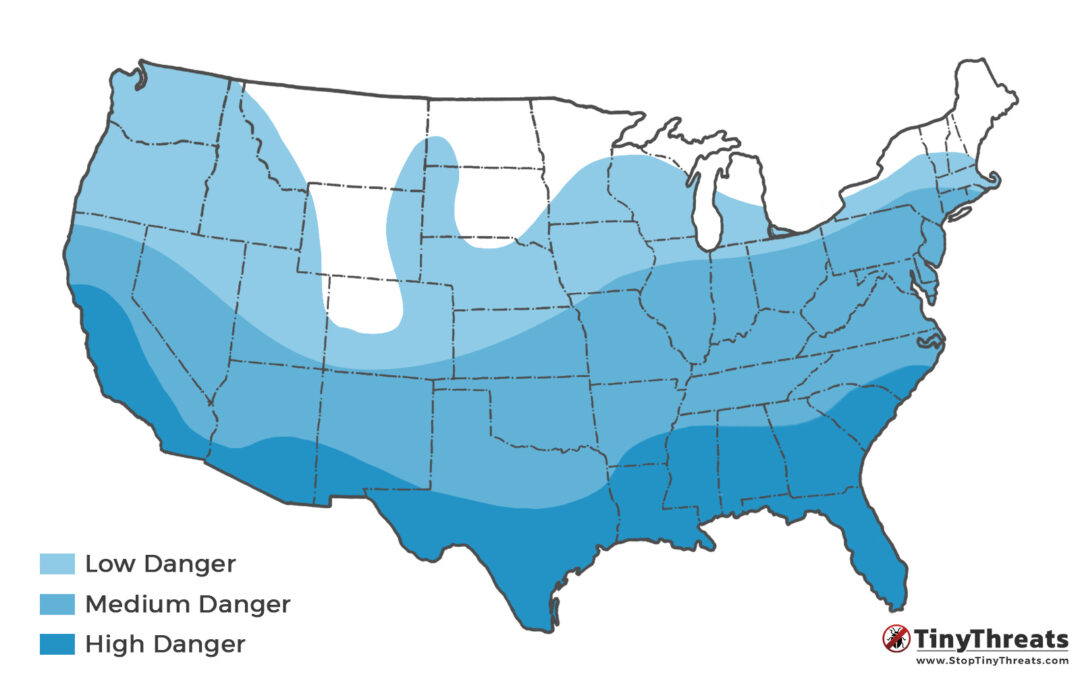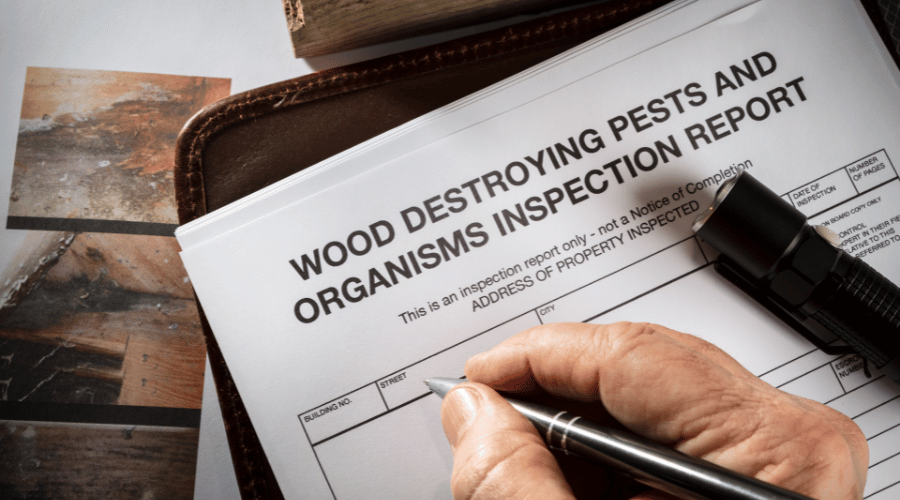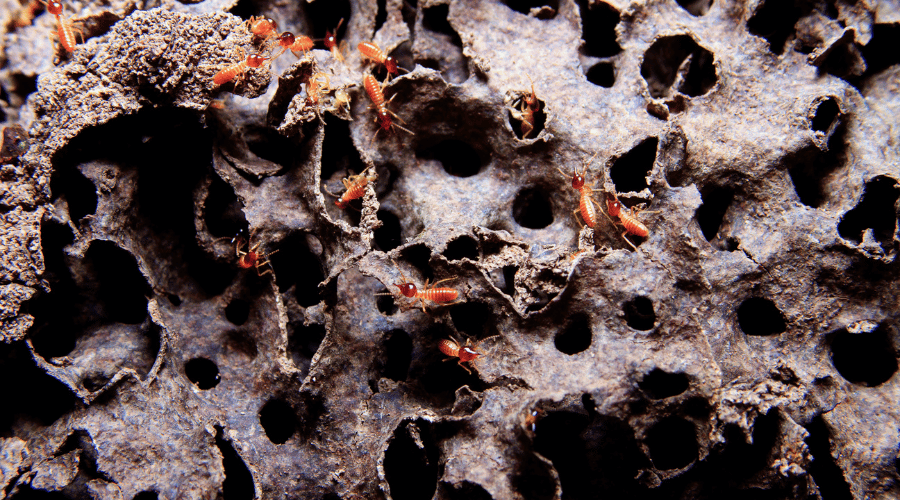Are you a homeowner looking for an effective, yet environmentally-friendly way to treat and kill termites in your home without doing any of the labor yourself? If so, then nematodes may be the perfect solution for you!
Nematodes are microorganisms that can effectively target and kill different pests like ants and termites.
Not only do they offer tremendous control benefits, but they also work with nature to help maintain balance in the natural environment.
In this blog post, we’ll discuss how nematodes work to treat and kill termites, along with some tips on how homeowners can best utilize them against potential infestations.
Keep reading to learn more about one of nature’s best pest solutions!
Table of Contents
What are Nematodes?
Nematodes are microscopic, parasitic worms that can be used to fight termites in a safe and effective manner. They don’t require any special equipment or professional help, allowing homeowners to easily apply them in their own homes.
When applied correctly, nematodes are an ideal solution for fighting termites because they can seek out and attack the termites without damaging the home or posing a health risk to people and pets.
When shopping for nematodes, it is important to make sure you are purchasing a variety that specifically targets termites. There are several different types of nematodes available and they can be found in home and garden shops in small bags.
Nematodes are also highly specific in their targeting and do not affect any other insects or mammals, are compatible with many pesticides, can be easily and cheaply produced, and are applied with regular household spray equipment. (1)

How to use Nematodes against Termites
To use nematodes against termites, start by mixing nematodes into water and stirring until evenly blended.
Then, pour this solution into a small spray bottle and apply it to termite-infested wood.
Make sure to treat both the inside and outside of your home, mainly focusing on areas with visible termite damage. Check our article for the most common signs of termite damage in walls.
Apply the solution once a day for best results, and monitor progress after applying nematodes. If necessary, repeat the application until there is no more evidence of termites.
Important warning about nematode treatments
However, keep in mind that termites often dig deep into wood, and are masters at staying undetected. Until you wipe out the colony itself, including the queen and all secondary queens, the fight against this pest is not over.
A big danger with termite infestations is using a DIY treatment and thinking it was successful, while the insects merely relocated and are now destroying a different part of your home, undetected.
Benefits of using Nematodes against Termites
Using nematodes to get rid of termites is not only safe and environmentally friendly, but it can also be cost-effective and efficient. They are living organisms that target termites by seeking out their larvae, making them an effective way to wipe out entire termite colonies.
Nematodes are also quick acting, as they can start to target and kill termites within 24 hours. Additionally, they are easy to apply as they can be sprayed directly into the affected area.

Limitations of Nematodes as Termite Treatment
Nematodes have become a popular method of controlling termites in recent years, but there are some limitations to using them for this purpose.
The first limitation is that nematodes must be applied in large numbers to be effective, which can be costly and impractical in larger-scale treatments.
Additionally, nematodes must be stored and applied correctly, or their effectiveness can be diminished.
Finally, not all nematodes work on all species of termites, so it is important for homeowners to identify which type of termite they are dealing with before attempting to use nematodes as a treatment.
While nematodes may be a viable option in certain cases, they should not be viewed as the ultimate all-in-one solution.
Alternative and Supplemental Termite Treatments
In addition to their limitations, there is one more important downside: Nematodes are a treatment, but that implies that there is already an active and discovered termite infestation near or in your house.
Often, these infestations grow unnoticed for years, causing serious damage. Yearly termite inspections are important to prevent this from happening. A termite bond with a professional pest control company can be a great way to ensure your home never gets infested in the first place.
If you want to keep your home termite-free, pre-construction treatment is usually your best investment, but after construction, termite bait traps are a very popular way to monitor termite activity and wipe out entire colonies passively if any come close to your home.
Conclusion
Termites can be a serious problem for homeowners, as they often go undetected and cause significant damage. While nematodes may be a viable treatment option in certain cases, it is important to remember that they are not the ultimate all-in-one solution.
There are many other alternative and supplemental termite treatments available that homeowners should consider before using nematodes.
Annual termite inspections are an important way to prevent infestations, and pre-construction treatment is usually the best investment a homeowner can make to protect their home from termites.



